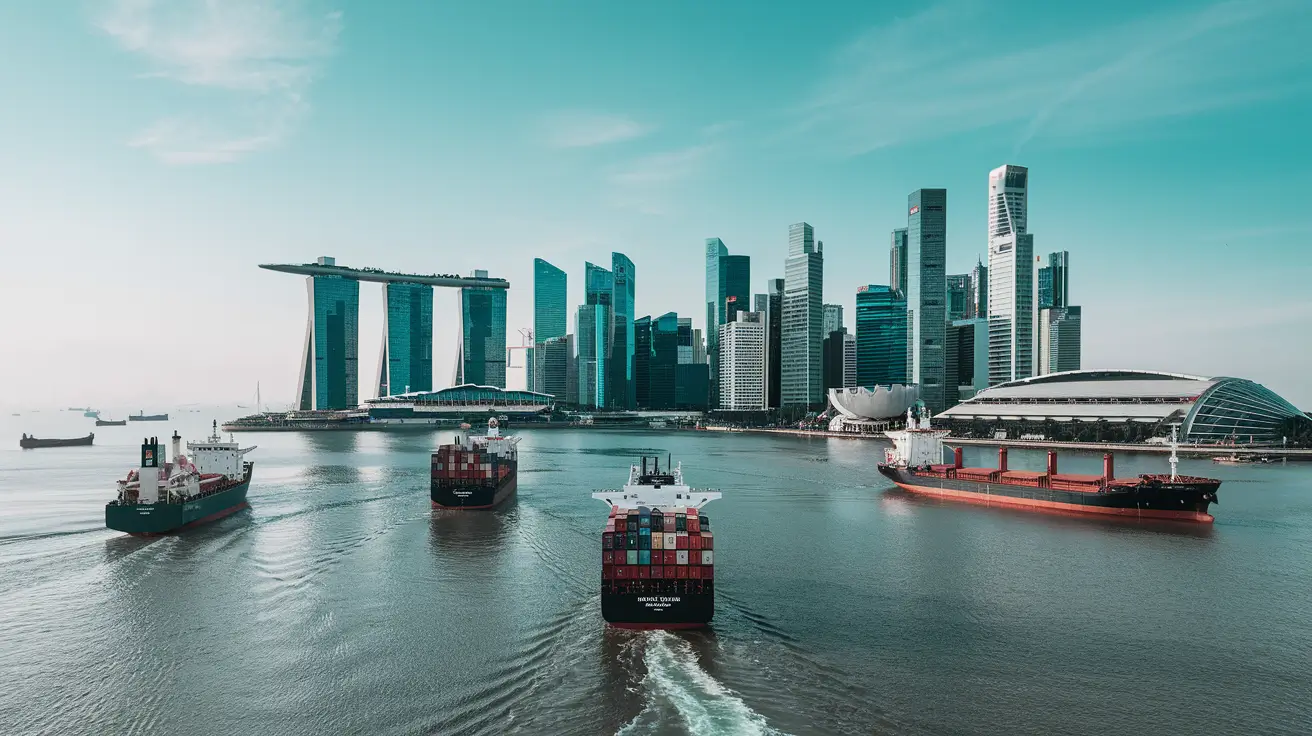Image generated in Ideogram
Maritime Singapore, renowned as a global hub port and international maritime center, is setting sail on a transformative journey towards a sustainable future. The Maritime and Port Authority of Singapore (MPA) has unveiled its ambitious and concrete long-term strategy, known as the Maritime Singapore Decarbonisation Blueprint: Working Towards 2050. This blueprint, developed in consultation with industry partners and guided by global commitments, aims to propel Singapore towards a greener maritime industry. In this article, we explore the key focus areas outlined in the blueprint and the collaborative efforts shaping a sustainable Maritime Singapore.
Port Terminals: Pioneering Sustainability
Singapore’s port terminals play a crucial role in the nation’s maritime ecosystem. The blueprint emphasizes the implementation of eco-friendly technologies, energy-efficient practices, and innovative solutions to reduce emissions and enhance sustainability in port operations. Through the adoption of smart systems and infrastructure upgrades, Singapore aims to set new benchmarks in environmental stewardship and lead the way towards carbon neutrality.
Domestic Harbour Craft: Embracing Green Alternatives
To achieve its decarbonization goals, Singapore recognizes the significance of transitioning to greener alternatives for domestic harbor craft. The blueprint focuses on promoting the adoption of low-emission propulsion systems, exploring electric and hybrid technologies, and encouraging the use of cleaner fuels. By incentivizing the transition to sustainable maritime transport within domestic waters, Singapore aims to create a cleaner and more efficient harbor environment.
Future Marine Fuels, Bunkering Standards, and Infrastructure: Powering Sustainability
As the maritime industry seeks cleaner energy sources, the blueprint emphasizes the development of future marine fuels and the establishment of bunkering standards and infrastructure. Singapore aims to be at the forefront of research and innovation in sustainable fuels, such as hydrogen and ammonia, as well as the advancement of bunkering facilities to support their adoption. By proactively investing in sustainable energy solutions, Singapore positions itself as a key player in shaping the future of maritime fuel consumption.
Singapore Registry of Ships: Fostering Green Shipping
The Singapore Registry of Ships plays a pivotal role in promoting environmentally friendly shipping practices. The blueprint highlights the importance of incentivizing ship owners to adopt energy-efficient designs, encouraging the use of low-carbon technologies, and embracing alternative fuels. By aligning the registry’s policies with global sustainability standards, Singapore aims to enhance its fleet’s environmental performance and attract environmentally conscious shipowners.
Efforts at International Platforms: Collaborating for Change
Recognizing the global nature of the maritime industry, Singapore actively participates in international platforms to drive decarbonization efforts. The blueprint underscores Singapore’s commitment to engage with the International Maritime Organization (IMO) and other international bodies, advocating for progressive policies, setting emission reduction targets, and sharing best practices. Through these collaborations, Singapore aims to foster a collective commitment to sustainability and shape global maritime regulations.
Research & Development and Talent: Cultivating Innovation
Innovation and talent development are key pillars in Singapore’s decarbonization journey. The blueprint emphasizes the need for robust research and development initiatives to drive technological advancements and accelerate the adoption of sustainable solutions. Singapore seeks to attract and nurture talent in areas such as clean energy, digitalization, and maritime engineering to fuel the industry’s transformation. By investing in research and fostering a skilled workforce, Singapore aims to remain a hub for maritime innovation and excellence.
Carbon Awareness, Carbon Accounting, and Green Financing: Valuing Sustainability
Creating awareness and establishing mechanisms for carbon accounting and green financing are essential for the success of Singapore’s decarbonization efforts. The blueprint highlights the importance of educating stakeholders, including ship owners, operators, and financiers, about the environmental impact of their activities. Furthermore, it advocates for the development of financial instruments and incentives that promote sustainable investments in the maritime sector. By integrating carbon awareness, accounting, and green financing, Singapore aims to create a virtuous cycle of sustainability.


